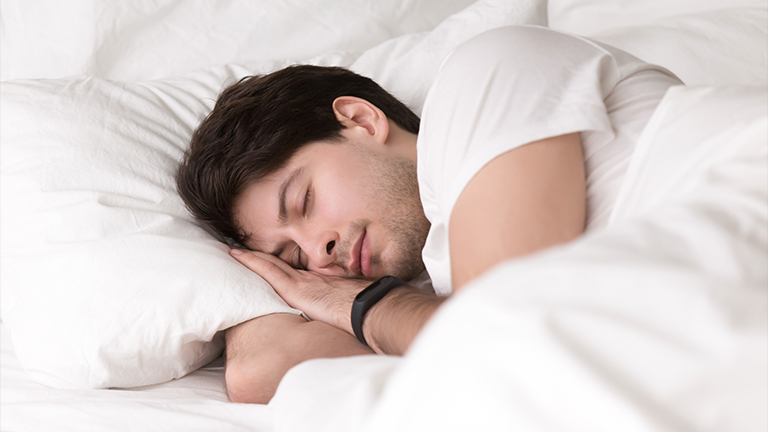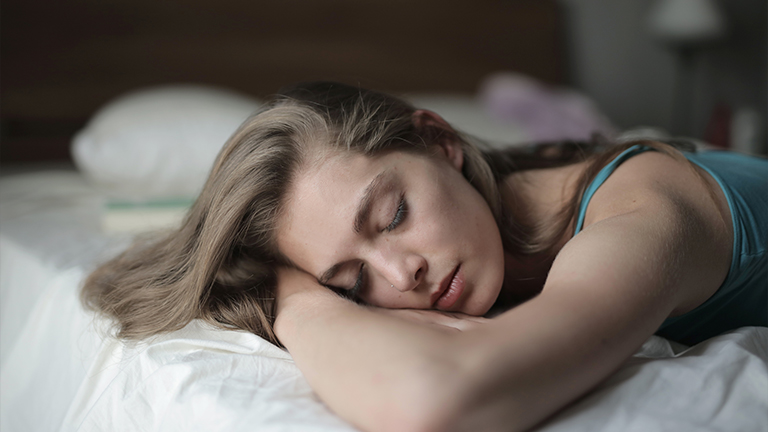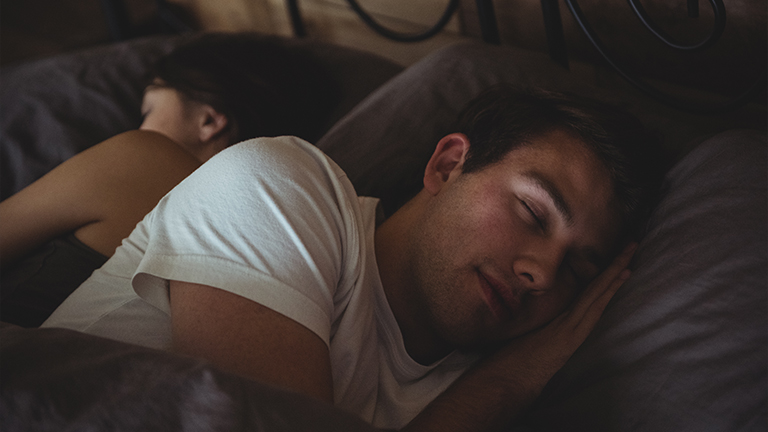Sleep is essential for overall health, but not all sleep is the same. Deep sleep, also known as slow-wave sleep (SWS), is the most restorative stage of the sleep cycle. It plays a crucial role in physical recovery, memory consolidation, and immune function.
In this comprehensive guide, we’ll explore:
- What deep sleep is and how it fits into the stages of sleep
- The benefits of deep sleep for brain and body
- How much deep sleep you need by age
- Signs you’re not getting enough deep sleep
- Science-backed tips to increase deep sleep naturally
- Common deep sleep disorders and how to address them
Let’s dive in!
What Is Deep Sleep? (Definition & Overview)
Deep sleep is the third stage of non-REM (NREM) sleep, where brain waves slow down significantly (delta waves). This phase is crucial for:
- Physical recovery (muscle repair, tissue growth)
- Memory consolidation (transferring short-term to long-term memory)
- Hormone regulation (growth hormone release)
- Immune system strengthening
Unlike REM sleep (where dreaming occurs), deep sleep is a time of minimal brain activity, making it the most restorative phase.
Stages of Sleep: Where Does Deep Sleep Fit In?
The sleep cycle consists of four stages, repeating every 90-120 minutes:
- NREM Stage 1 (Light Sleep) – Transition from wakefulness to sleep (5-10 mins).
- NREM Stage 2 (Deeper Light Sleep) – Body temperature drops, heart rate slows (50% of sleep time).
- NREM Stage 3 (Deep Sleep / Slow-Wave Sleep) – Hardest to wake from; essential for recovery (20-25% of sleep).
- REM Sleep (Dreaming Stage) – Brain activity increases, crucial for cognitive function.
A full sleep cycle repeats 4-6 times per night, with deep sleep dominating the first half.
Why Is Deep Sleep Important? (Health Benefits)
Getting enough deep sleep is linked to numerous health benefits:
1. Boosts Memory & Learning
- Deep sleep helps consolidate memories and improve cognitive function.
- Studies show it enhances problem-solving skills and creativity.
2. Supports Physical Recovery
- Growth hormone is released, aiding muscle repair and cell regeneration.
- Essential for athletes and those recovering from injuries.
3. Strengthens the Immune System
- Deep sleep enhances immune response, helping fight infections.
- Lack of deep sleep increases susceptibility to illnesses.
4. Regulates Mood & Mental Health
- Poor deep sleep is linked to anxiety, depression, and irritability.
- Restorative sleep balances stress hormones like cortisol.
5. Promotes Heart Health
- Deep sleep helps regulate blood pressure and reduces cardiovascular risks.
How Much Deep Sleep Do You Need? (By Age Group)
The ideal deep sleep duration varies by age:
| Age Group | Recommended Deep Sleep |
| Adults (18-64) | 1.5 – 2 hours per night (20-25% of total sleep) |
| Seniors (65+) | 1 – 1.5 hours (may decrease with age) |
| Teenagers | 2 – 2.5 hours (critical for development) |
| Children | 2.5 – 3 hours (supports growth) |
Most adults need 7-9 hours of total sleep, with 1.5-2 hours in deep sleep.
Signs You’re Not Getting Enough Deep Sleep
Common symptoms of deep sleep deficiency include:
- Chronic fatigue despite long sleep hours
- Difficulty concentrating and memory lapses
- Frequent sickness (weakened immunity)
- Slow muscle recovery after workouts
- Increased cravings for junk food (hormonal imbalance)
If you experience these, you may need to improve deep sleep quality.
How to Measure Deep Sleep? (Trackers & Tools)
You can track deep sleep using:
- Wearable Devices (Fitbit, Oura Ring, Whoop)
- Smartphone Apps (Sleep Cycle, Pillow)
- Polysomnography (Lab Sleep Study) – Most accurate but costly.
While trackers aren’t 100% precise, they help identify sleep patterns.
Tips to Increase Deep Sleep Naturally (Science-Backed)
Want more deep sleep? Try these evidence-based strategies:
1. Stick to a Consistent Sleep Schedule
- Go to bed and wake up at the same time daily (even weekends).
2. Optimize Your Sleep Environment
- Keep the room cool (60-67°F / 15-19°C) and dark (blackout curtains).
- Use white noise machines to block disturbances.
3. Limit Caffeine & Alcohol Before Bed
- Avoid caffeine 6+ hours before bedtime.
- Alcohol disrupts deep sleep, even if it helps you fall asleep faster.
4. Exercise Regularly (But Not Too Late)
- Moderate exercise improves deep sleep, but avoid intense workouts 2-3 hours before bed.
5. Try Relaxation Techniques
- Meditation, deep breathing, or yoga reduce stress and promote deep sleep.
6. Eat Sleep-Friendly Foods
- Magnesium-rich foods (spinach, almonds) and tryptophan sources (turkey, bananas) help.
7. Reduce Blue Light Exposure at Night
- Use blue light filters on devices or wear blue-light-blocking glasses.
Common Disorders Affecting Deep Sleep
Some conditions disrupt deep sleep, including:
1. Sleep Apnea
- Breathing interruptions reduce deep sleep.
- Treatment: CPAP machines or lifestyle changes.
2. Insomnia
- Difficulty falling/staying asleep affects deep sleep.
- Solutions: Cognitive Behavioral Therapy (CBT-I), relaxation techniques.
3. Restless Legs Syndrome (RLS)
- Uncomfortable leg sensations disrupt sleep.
- Treatment: Iron supplements, medication.
If you suspect a sleep disorder, consult a sleep specialist.
Deep Sleep vs. REM Sleep: Key Differences
| Factor | Deep Sleep | REM Sleep |
| Brain Activity | Slow delta waves | High (similar to wakefulness) |
| Body Movement | Minimal | Paralyzed (except eyes) |
| Dreaming | Rare | Vivid dreams occur |
| Primary Function | Physical recovery, memory | Emotional processing, creativity |
Both are essential, but deep sleep is more physically restorative, while REM supports mental and emotional health.
FAQs About Deep Sleep
1. Can You Increase Deep Sleep?
Yes! Follow a consistent sleep schedule, reduce stress, and optimize your sleep environment.
2. What Happens If You Don’t Get Enough Deep Sleep?
You may experience fatigue, poor memory, weakened immunity, and mood swings.
3. Does Melatonin Help Deep Sleep?
Melatonin regulates sleep onset but doesn’t directly increase deep sleep.
4. How Does Aging Affect Deep Sleep?
Deep sleep decreases with age, but healthy habits can help maintain it.
5. Can Naps Replace Deep Sleep?
No, naps are mostly light sleep. Deep sleep occurs in long, uninterrupted nighttime sleep.
Final Thoughts
Deep sleep is vital for physical recovery, brain function, and overall well-being. By understanding its importance and implementing science-backed sleep practices, you can improve sleep quality and wake up refreshed.
Key Takeaways:
- Deep sleep is the most restorative sleep stage.
- Adults need 1.5-2 hours of deep sleep per night.
- Poor deep sleep leads to fatigue, memory issues, and weakened immunity.
- Consistency, relaxation, and a sleep-friendly environment enhance deep sleep.
Prioritize deep sleep, and your body and mind will thank you!
Did you find this guide helpful? Share it with friends and family to help them sleep better!



